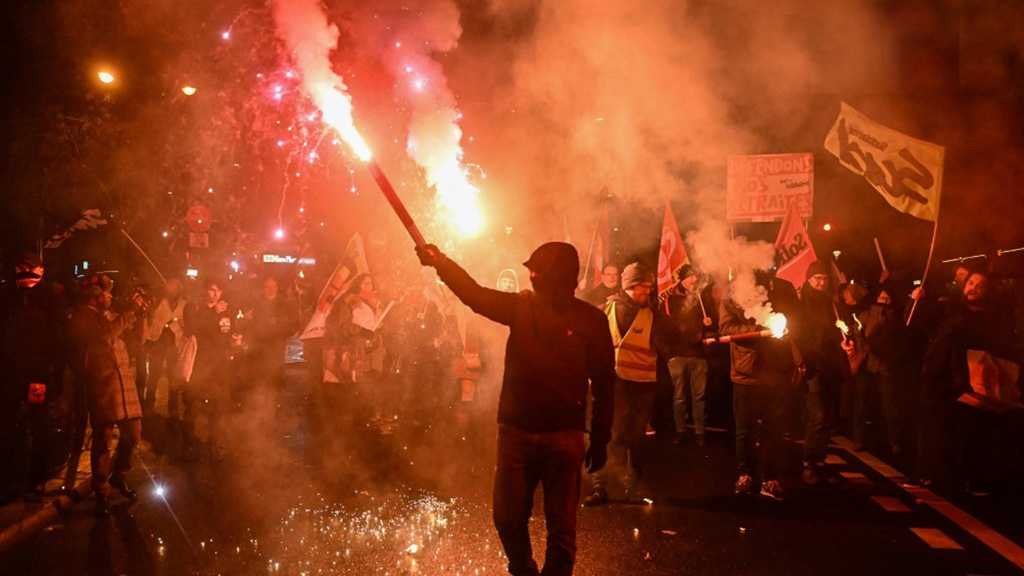
France Says Retirement Policy Not Open to Negotiation

By Staff, Agencies
The French prime minister has ruled out backtracking on a plan to raise retirement age as the country's major labor unions prepare for another day of nationwide strikes.
Elisabeth Borne's Sunday comment came as the government is planning to gradually increase the retirement age by three months per year from September, until 2030, and also plans to increase the length of time workers make social security contributions.
An increase in the minimum retirement age to 64 from the current 62 is the main part of the reform package pushed by President Emmanuel Macron to ensure the future financing of France's pensions system.
While unions have welcomed the government's readiness for negotiation on parts of the plan, they say the proposed 64-year rule has to go.
"This is now non-negotiable," the prime minister told the FranceInfo broadcaster.
"The heart of the reform will not change," Transport Minister Clement Beaune also said on Sunday, asserting that President Macron's government would maintain the reform's key target of increasing the retirement age.
Union protests against the change brought out more than a million people onto the streets across France on January 19.
Calling the reform "unfair," France's eight major unions, in a rare show of unity, said they hoped to "mobilize even more massively" on Tuesday than at the January 19 rallies.
The government put the turnout on January 19 at 1.1 million, while the unions said more than two million took part in the protest.
"It's looking like there will be even more people" in Tuesday protest, said Celine Verzeletti, member of the hard-left union CGT's confederation leadership.
Pointing to opinion polls, Laurent Berger, head of the moderate CFDT union, said "the people disagree strongly with the project, and that view is gaining ground."
It would be "a mistake" for the government to ignore the mobilization, he warned.
Some 200 protests are being organized countrywide, with a big march planned for Paris culminating in a demonstration outside the National Assembly where parliamentary committees will start examining the draft law on Monday.
The left-wing opposition has submitted more than 7,000 amendments to the draft in order to slow its passage through parliament. Macron's allies, who do not have an absolute majority in parliament, will need votes from conservatives to get their pensions plan approved.
Another option for the government is forcing the bill through without a vote under special constitutional powers. However, in that case, it would face the risk of a vote of no confidence and possibly new parliamentary elections.
In addition to protest marches, unions have called for widespread strike actions on Tuesday, with railway services and public transport expected to be heavily affected.
Work stoppages are also expected in schools and administrations, with some local authorities having already announced closures of public spaces such as sports stadiums.
According to the transport minister, the planned strikes will cause heavy disruption to public transport on Tuesday.
"It will be a difficult, very difficult day for public transport... We expect major disruptions," Beaune said on LCI TV.
Some unions have also called for further strike action in February, including at commercial ports, refineries and power stations.



